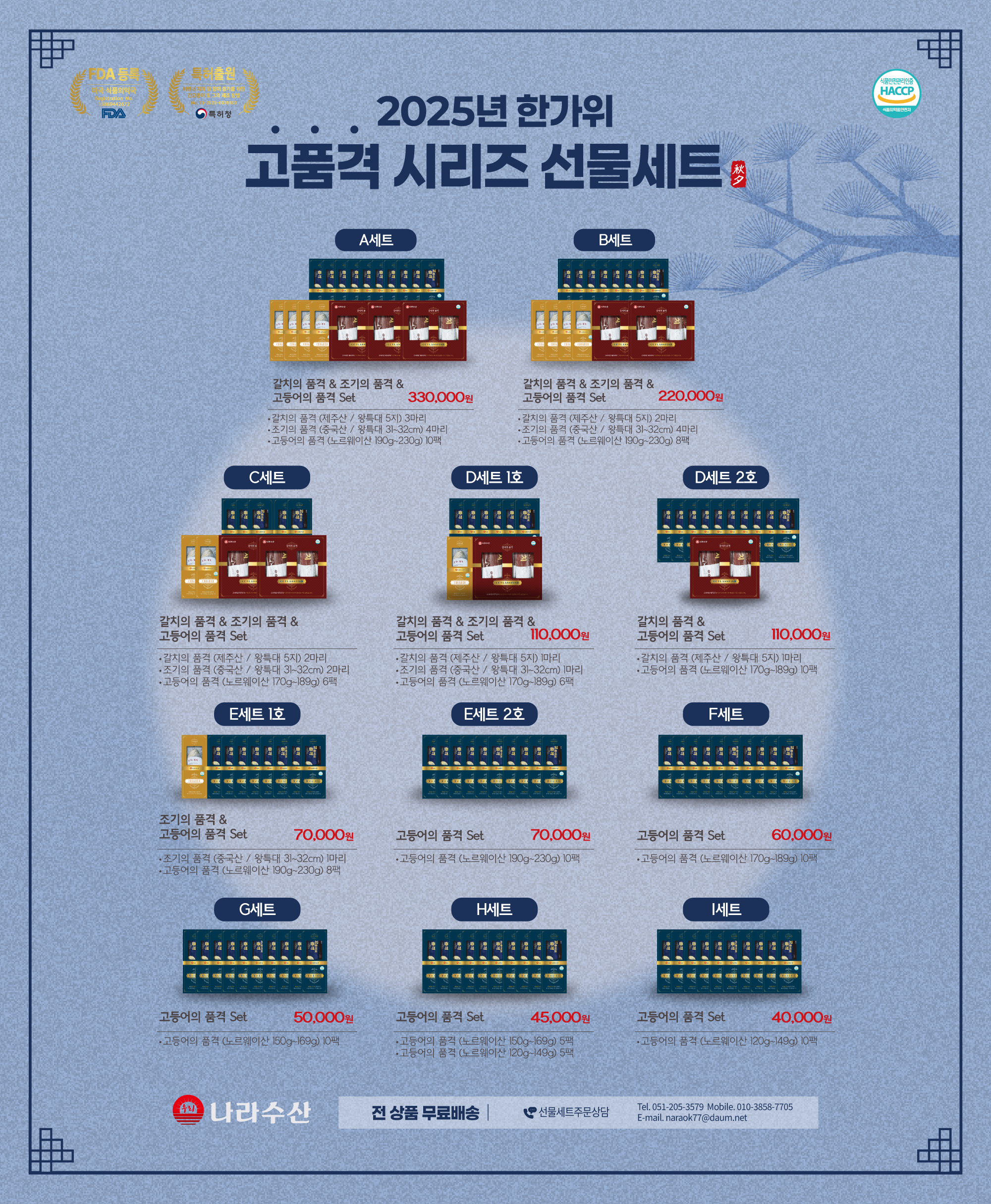Mackerel product information

Nara Seafood Mackerel is different! It is a classy mackerel that uses top-quality domestic ingredients.
Nara Seafood cares for your health. We offer high-quality mackerel that has a low level of fish smell and sodium, while containing various minerals, by using domestic Chinese matrimony vine(gogi berries), kelp salt and shiitake mushrooms.
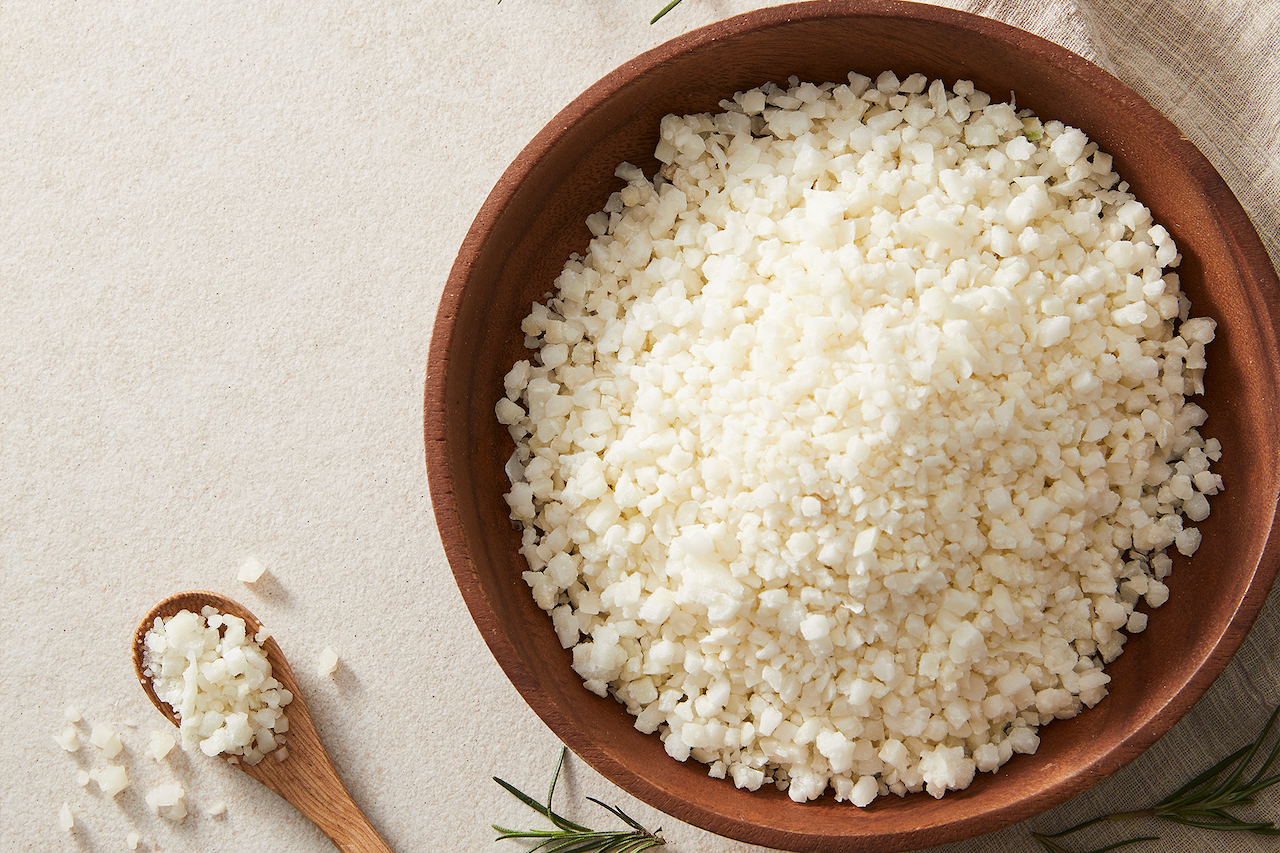
Kelp Salt
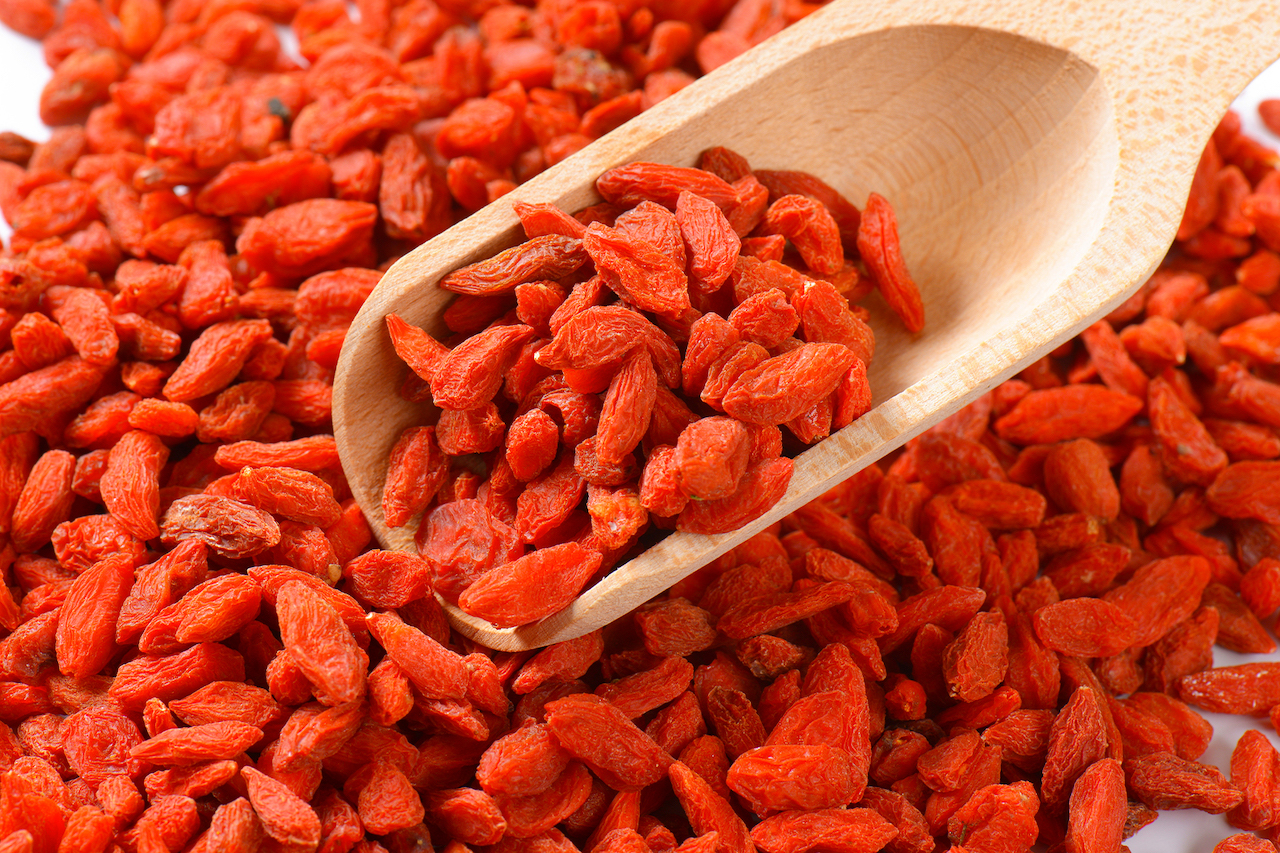
Chinese Matrimony Vine(gogi berries)
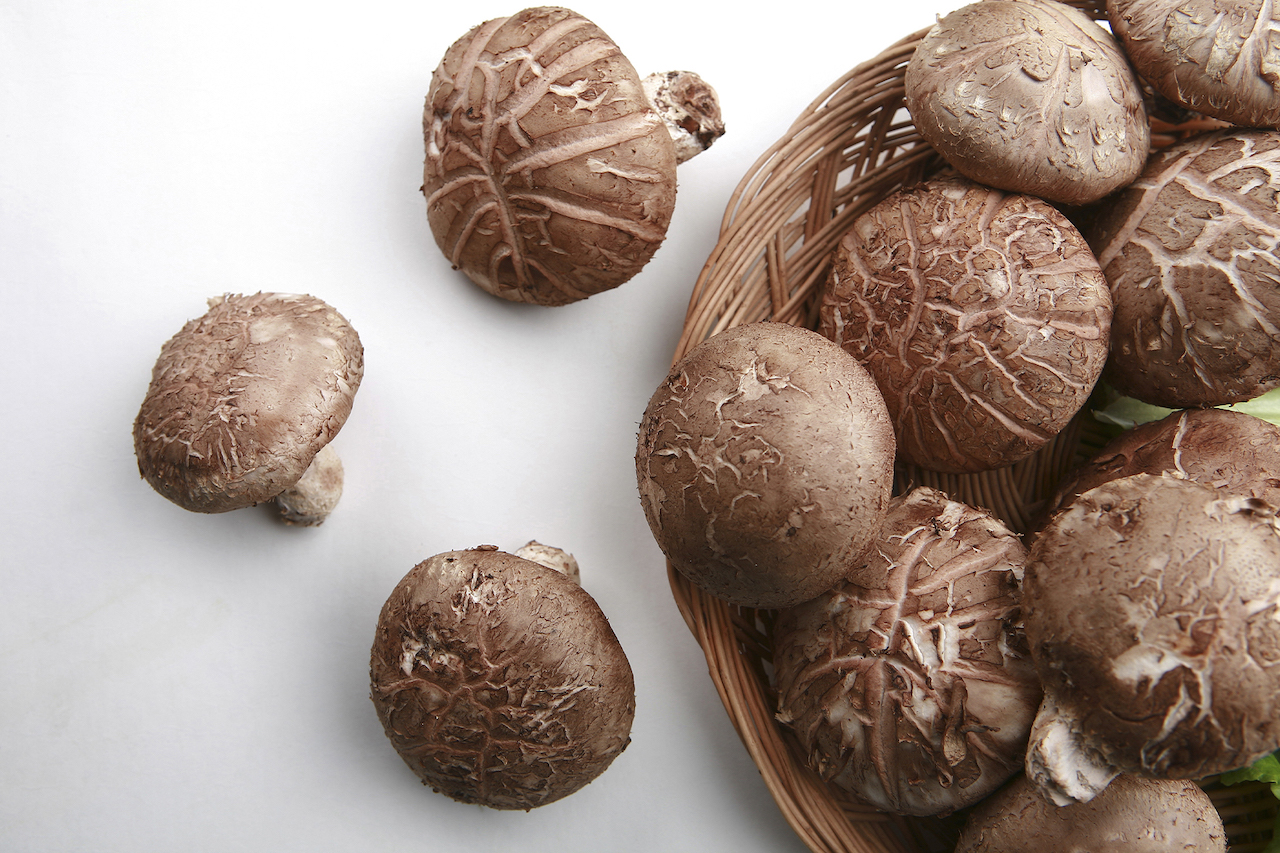
Shiitake Mushrooms
Certified as a master of intangible cultural heritage in Korea, our mackerel has been processed to reduce fishy smell and lower sodium content.
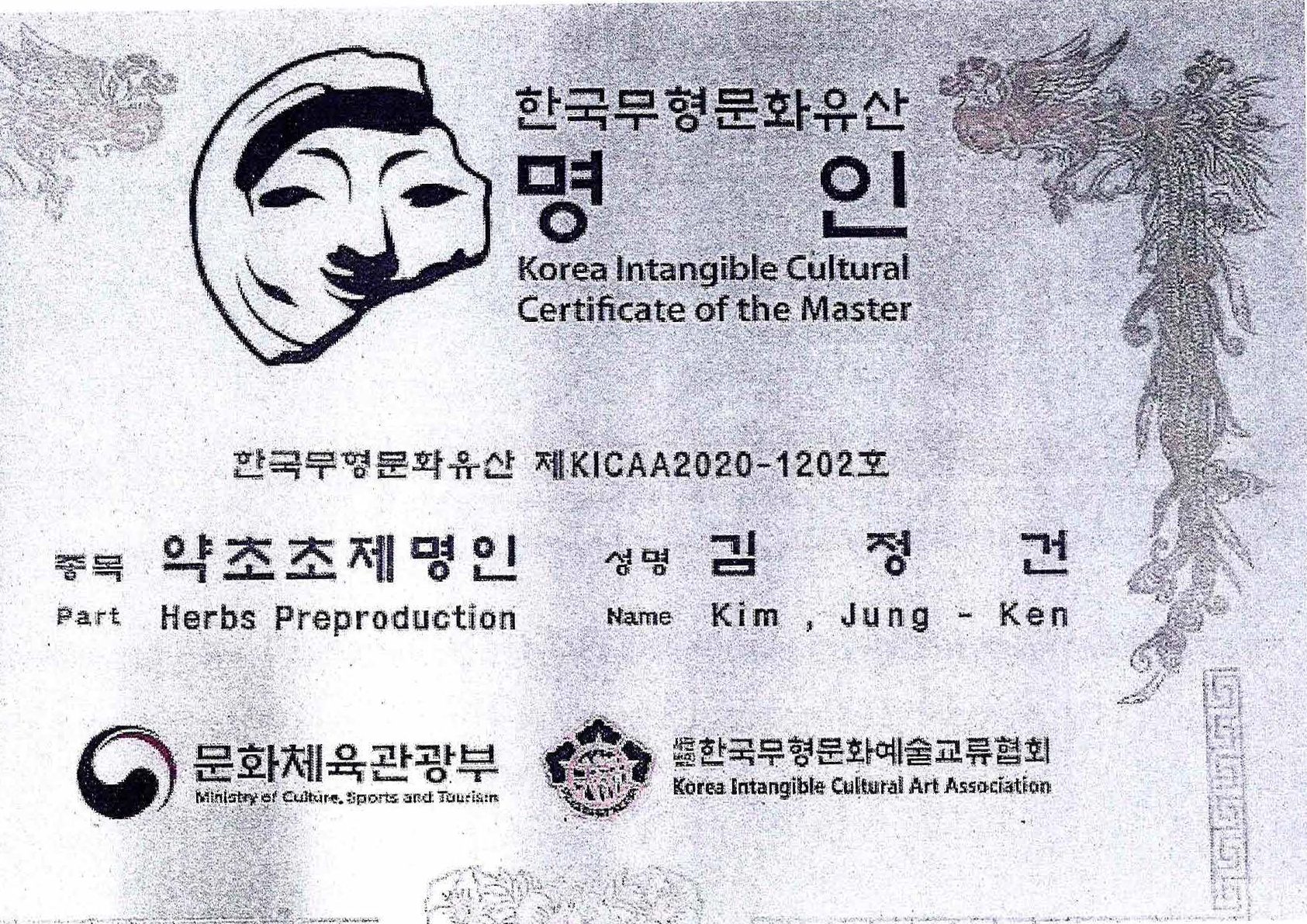
Master of Herbal Medicine Manufacturing
We use premium ingredients crafted by a master of intangible cultural heritage in Korea
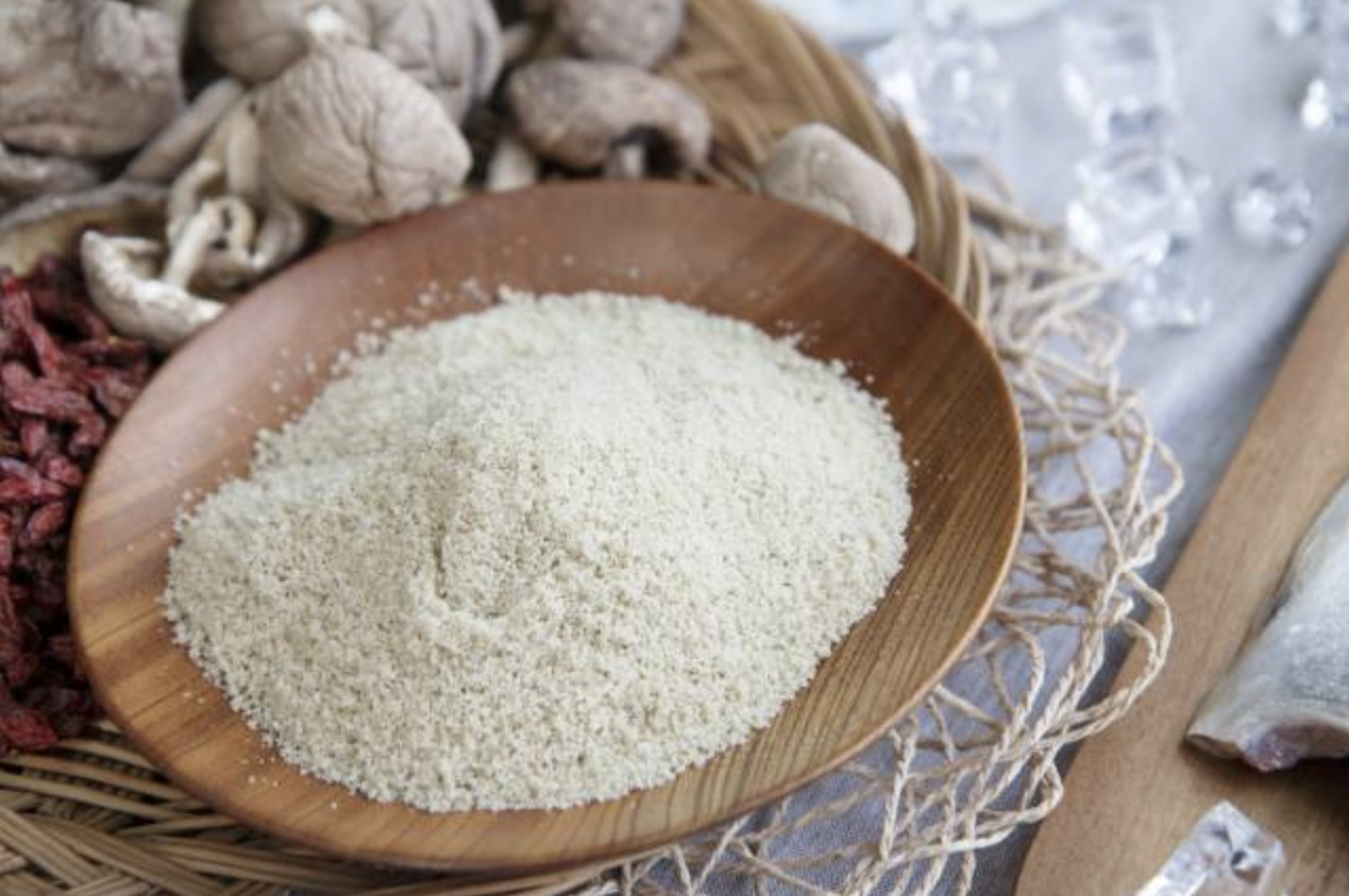
Kelp Salt
- 20% less sodium content compared to regular refined salt.
- Rich in minerals such as calcium, potassium, magnesium, and dietary fiber
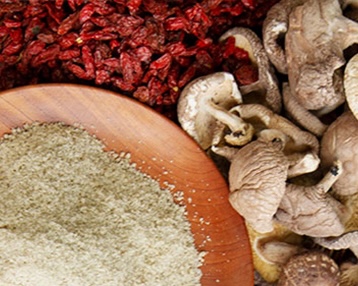
Chinese Matrimony Vine(gogi berries) and Shiitake Mushrooms.
- Provides excellent taste and nutrition, while enhancing flavor with various ingredients and reducing fishy smell
Nara Seafood Processing Procedure
Work processes that are carefully groomed and hygienically managed by veteran professionals
Nara Seafood Packaging Procedure
Safe domestic processing at HACCP-certified facilities, Individual vacuum packaging that is easy to store and easy to eat
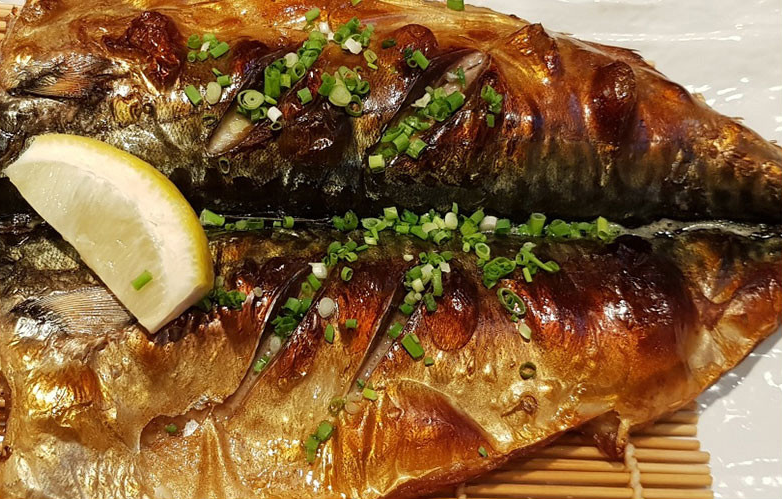
What is Mackerel?
Mackerel is a representative marine product, with a silver-white belly and a mottled dark blue pattern on its back.
Mackerel, with its large and intensely black eyes, presents a very bold and fierce appearance.
It has a large and sturdy mouth with sharp teeth, looking like it has nothing to be afraid of.
According to fishermen, mackerel is said to be as fast as a bullet vertically and as fast as a high-speed train horizontally.
However, with its quick temperament matching its speed, mackerel starts deteriorating from the moment it is caught, making freshness more important than anything else.
Mackerel, with its abundance of nutrients such as DHA, EPA, and omega-3, along with its plump flesh and rich flavor due to high fat content, has been a shining star on the modest table of commoners, who could enjoy its benefits through various cooking methods such as grilling, braising, and stewing, thanks to its affordable price.
Therefore, among many fish species, mackerel is uniquely known as the “rice of the sea,” the fish of the people, and a common side dish for ordinary folks.
I only knew how to eat it..! It’s a truly remarkable fish.
Mackerel, also mentioned as 皐登魚 in the “Jasaneobo”, is often praised in various reports and broadcasts.
Reproduction and Spawning
They spawn from March to June. Over a period of two years, most of them mature, growing to a length of over 40cm. It is caught along the coast of Korea, with autumn and winter being the peak seasons. During this time, its fat content can increase up to 20%. Each spawning session produces approximately 20,000 eggs for one-year-old mackerel, around 30,000 eggs for two-year-olds, and approximately 45,000 eggs for three-year-olds. Hatching takes about 50 hours at a water temperature of 20°C and about 30 hours at 25°C.
Diet and Distribution
They feed on animal plankton, shrimp, anchovies, and other small fish. They are migratory fish, migrating northward in spring and summer and southward in autumn and winter. As migratory fish, they follow warm ocean currents and are distributed widely throughout the world's oceans.
Norwegian mackerel
Norwegian mackerel accounts for the majority of the mackerel imported into Korea, making it readily available in the market.
Norwegian mackerel, which grows in the cold and clean waters of the Atlantic, is primarily harvested from September to November.
To pass on the fishery resources to future generations, harvest period is limited. At this time, mackerel accumulates fat content up to 30%, resulting in a moist and rich flesh with a balanced and savory taste that many enjoy
Nara Seafood also import premium Norwegian mackerel and produce it with care.
Nutritional ingredients of mackerel
One serving (100g) of raw Atlantic mackerel provides 205 kcal, 13.9g of fat, 90mg of sodium, and 19g of protein and is free of carbohydrates, fiber, or sugar, according to data from the USDA.
- kcal : 205
- Fat : 13 - 9g
- Sodium : 90mg
- Carbohydrate: 0g
- Fiber: 0g
- Sugar: 0g
- Protein: 19g
- Magnesium: 76 mg
- Potassium: 314g
- Selenium: 44.1 g
Brochure
We strive with pride as the top mackerel company in South Korea, driven by a sense of accomplishment and a commitment to sound corporate values.

